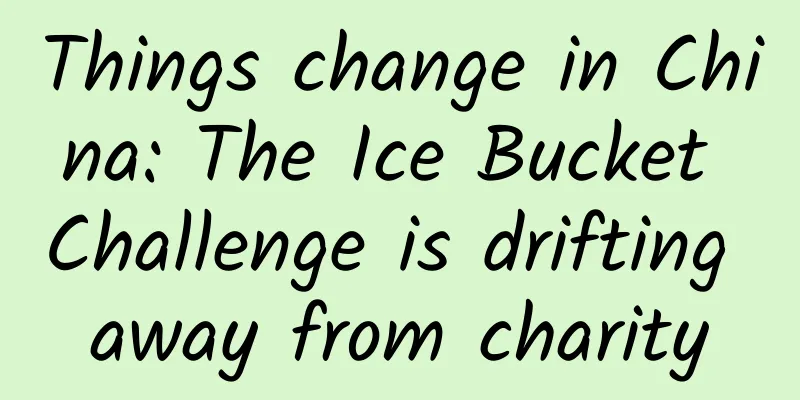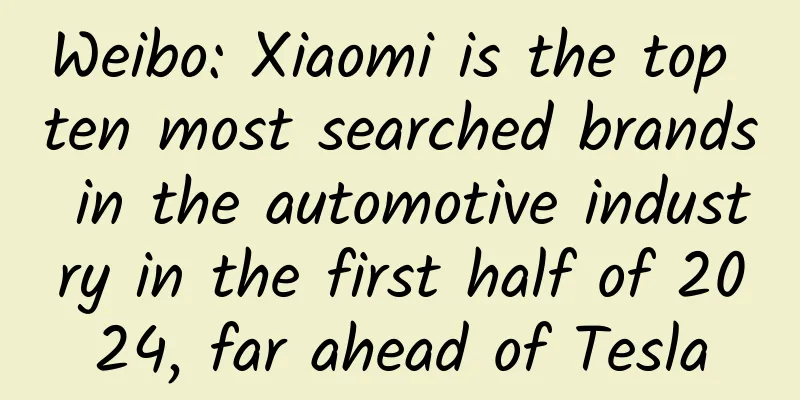Things change in China: The Ice Bucket Challenge is drifting away from charity

|
An "Ice Bucket Challenge" aimed at raising awareness of the rare disease amyotrophic lateral sclerosis (ALS) has "spill over into China" after sweeping the United States. The "Ice Bucket Challenge" requires the person to pour a bucket of ice water on himself and designate the next three people to repeat the process within 24 hours. If you do not accept the challenge, you will have to donate $100 to ALS-related organizations. However, this challenge, which lacks organizers, is deviating from its original intention of focusing on charity and patients. With its global chain reaction and the instant presentation of the Internet, ice bucket watering is becoming more and more a celebrity entertainment game. There is also a view that as long as the event plays a role in publicity and helps raise funds, then even if the celebrity uses the event to market his or her own image, it is valuable and a win-win situation. The problem is that in some countries with a more developed charity culture, people do not welcome the practice of creating a sensation through celebrity shows, while in countries that lack a charity culture, even putting on a show may not help promote charity and may even cause disgust. What is worth noting is the spread of this activity. In the Internet age, everyone can publish their own videos or speeches for people around the world to watch, and more people will participate in copying and spreading, or even imitate, because there are no walls between social media, and the Internet makes the whole world a community. The last time a dance that attracted global attention and was imitated was the "Gangnam Style" produced by Korean artists. Political figures such as the Secretary-General of the United Nations, European and American stars, and ordinary people all danced to the dance in this MTV. After the Internet creates a popular trend, those in the spotlight will actively follow and participate. Staying out of it will only make you look out of date, and only by participating can you attract attention. The "Ice Bucket Challenge" is similar to this. It was a TV host who made it popular on the Internet, and it set off a global craze with the participation of celebrities such as Bill Gates and Zuckerberg. However, unlike dancing, the people who were named in this event were passive participants, similar to moral kidnapping. This forced and self-abuse watering reduced the nobility of this activity; secondly, it is also a moment to show off one's interpersonal network and social status. If you are absent, it will be embarrassing and make participants feel oppressed; thirdly, in order to compete for attention, participants carried out various creative watering, which was more like an eye-catching performance art competition. Therefore, it is not surprising that this activity has been questioned. The "Ice Bucket" campaign came to China, and it started with the IT industry, not entertainment stars. This is because the Chinese entertainment industry is isolated from Europe and the United States, and it is difficult to spread to China through social circles. The Chinese IT industry is best at marketing and creating hot spots. Although people don't know whether anyone has named these IT elites, they are the first to perform in public, which is naked marketing, which is completely different from the personal actions of American celebrities. China lacks a universal charity culture, but hype and eyeball economy prevail. In this atmosphere, "ice bucket watering" is undoubtedly more likely to deviate from charity. In fact, a family cannot afford to provide for patients with rare diseases or major chronic diseases, and relying solely on charity is a drop in the bucket. Moreover, the final destination of these donations is still unclear. Therefore, to solve the plight of these families from an institutional perspective, it is still necessary for the government to make institutional assistance arrangements, which is where China should work hardest. As a winner of Toutiao's Qingyun Plan and Baijiahao's Bai+ Plan, the 2019 Baidu Digital Author of the Year, the Baijiahao's Most Popular Author in the Technology Field, the 2019 Sogou Technology and Culture Author, and the 2021 Baijiahao Quarterly Influential Creator, he has won many awards, including the 2013 Sohu Best Industry Media Person, the 2015 China New Media Entrepreneurship Competition Beijing Third Place, the 2015 Guangmang Experience Award, the 2015 China New Media Entrepreneurship Competition Finals Third Place, and the 2018 Baidu Dynamic Annual Powerful Celebrity. |
<<: Android fragmentation report released
Recommend
How to play with information flow advertising? Improving CTR is the key to gaining exposure
As an important part of native advertising, infor...
WeChat operation: 20 self-media platforms that self-media people must know
Dingdian started out as a channel developer, so i...
5 thoughts on community operations, and several points of focus on people and time periods!
In fact, this is a summary I wrote for myself. It...
"Car accident during singing" is trending on the Internet! Is singing out of tune a disease? It turns out that it is really...
Recently, many music variety shows have become po...
What information does WeChat know about you? Now you can check it with one click
The "Personal Information Protection Law&quo...
How do huge surface ships evade sensitive radar?
With the development of modern detection equipmen...
Why did Facebook abandon its DSP bidding product?
Facebook unexpectedly decided to remove this key ...
Lao A’s practical course on selling goods on Xianyu, simple, direct and rough, with original methods to help you sell goods on Xianyu
Lao A’s practical course on selling goods on Xian...
Event planning and promotion: The planned activities never produce results?
Activities are a very common means of operation, ...
China's Antarctic Qinling Station opens! Do you know about China's Antarctic Scientific Research Station?
China's Qinling Antarctic Station is located ...
Listen to CheapGPT talk about wandering balloons
After learning general physics in college, it is ...
I have collected them all! 2021 Alipay Five Fortunes Super Detailed Guide
The annual Alipay Five Blessings Collection has f...
How to write a countdown short copy?
During the Double Eleven period, when others were...
A paralyzed patient was admitted to the anorectal surgery department? Be careful, constipation may also be life-threatening!
Recently, Ms. Li (pseudonym), a patient with lowe...
Answers to ASO FAQs, give newbies a tomorrow!
I always feel that I am not a good analytical per...









